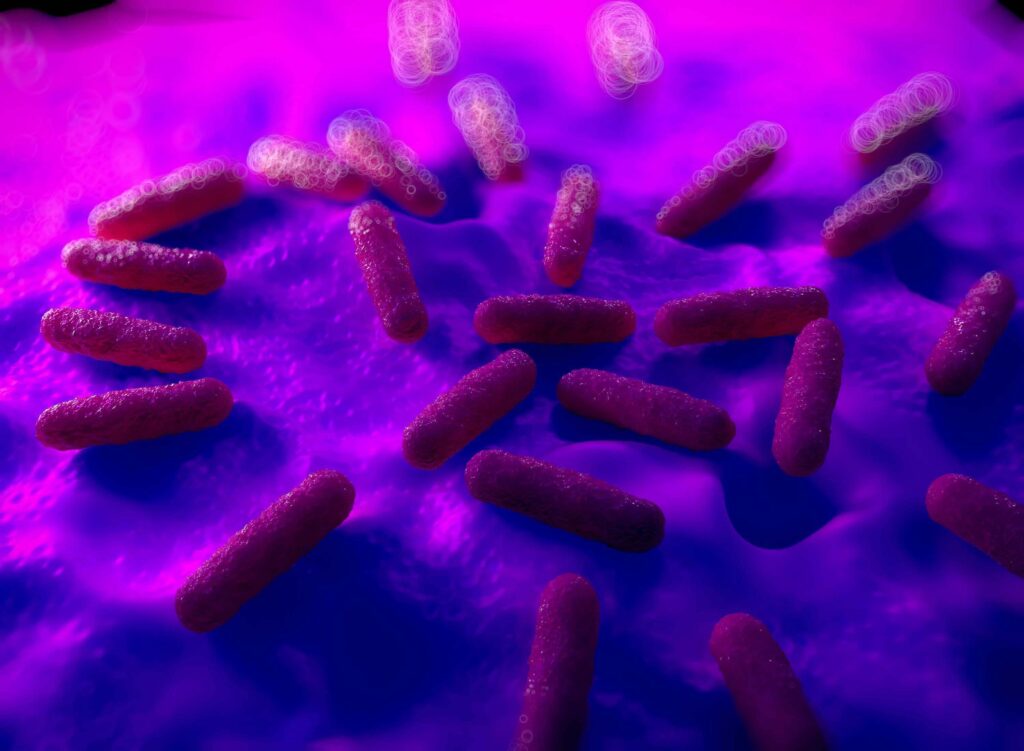
Your skin barrier function is everything disrupt it at your peril! Your skin barrier is made up of corneocytes [cells] that act like bricks. Corneocytes are tightly bound, or glued together, by mortar-like fats namely ceramides, cholesterol, and fatty acids. This layer also contains a protein called filaggrin, which helps make natural moisturizing factors (NMF) for the skin.
Your skin barrier acts as a security guard, protecting what’s inside and preventing skin aggressors such as UV radiation, pollution, bacteria, dirt, and toxins – from passing through. You are covered in a micro-ecosystem working in harmony with your skin barrier known as your microbiome.
What is the Microbiome?
Your skin’s ecosystem is comprised of trillions of microorganisms, consisting of bacteria, fungi, and viruses. These invisible life forms are what we refer to as the skin microbiome. They play an important part in your overall health as part of your immune system. It works with your skin barrier to:
- Fight infection – Some microbes act like a natural antibiotic, helping keep your skin acidic, which many germs don’t like.
- Help your immune system work. Microbes in your skin act as a warning flare, alerting your immune system to harmful bacteria or viruses.
- Play a role in how your cells respond to UV light. That’s the kind that causes skin cancer. More research is required to understand how this process works.
- Heal wounds and control inflammation. Signals from your skin microbiome can activate or deactivate your immune system. That helps you heal and controls harmful inflammation.
What can affect your skin microbiome?
- Genes
- Diet
- Other lifestyle choices, like smoking
- Environment
- Air pollution
- Exposure to UV light
- The menopause*
*A note on menopause and your microbiome – after menopause, oil glands reduce in size, leaving the skin drier, and more sensitive. The natural aging process increases the pH levels of your skin which causes changes to the microbiome and therefore the immune response on the outer layer of the skin. Maintaining a strong and resilient skin barrier becomes even more critical to help prevent water loss, sensitivity, and redness.
An imbalance in your microbiome is called dysbiosis and has so far been linked to certain skin health conditions:
- Eczema (atopic dermatitis)
- Psoriasis
- Acne
- Rosacea
- Wounds that do not heal
What are postbiotics?
Postbiotics are the metabolites, or byproducts of living organisms (probiotics) and are created during the lipid fermentation process. The microbial cells or their cellular components are deliberately inactivated, with or without metabolites, which allows them to maintain a state of skin flora equilibrium and prove to be stable and safe in skincare products.
The skin benefits of postbiotics
- Postbiotics encourage a healthier skin microbial ecosystem
- Highly moisturizing with skin penetration capabilities
- Powerful active antioxidants
- Anti-sebum
- Anti-inflammation
- Anti-irritation
- Have a natural emulsifying capacity.
Postbiotics and your natural skin barrier work together to form a strong defensive shield, when this is compromised skin is left ‘exposed’ and less able to defend against environmental stressors we are each exposed to daily, leading to:
- Dry, and more sensitized skin
- Heightened inflammatory responses make it prone to sensitivity breakouts
- Nerve receptors TRPV-1 can trigger skin reactions in response to heat, foods, and alcohol causing skin redness and irritation.
Prebiotics
Lactobacillus Bulgaricus Ferment Filtrate – Are prebiotics derived from soy and chicory with the process of fermentation yield a cosmetic extract capable of enhancing the overall function of skin cells while increasing the antioxidant activity of Lactobacillus bulgaricus.
I have incorporated postbiotics into the formulation of LUCA | Lipid-Ferment Vitamin C Serum via fermented lipids. The micro-organism [Pseudozyma] is combined with Olive Fruit, Sunflower Seed, Argan Kernel, Apricot Kernel, and Sweet Almond Oils and fermented for 150 hours with whole plant extracts of:
- Angelica Root – Skin Brightening
- Cromwell Root – Collagen Boosting
- Licorice Root – Skin Brightening
Fermented Extracts, via Lactobacillus bulgaricus Ferment and White Willow Bark:
- Cellular Renewal and boosting Barrier Function
Collectively create a potent source of the microbiome and skin-loving prebiotics and postbiotics protecting and promoting a healthier skin microbial ecosystem and strong skin barrier defense.
Until next time, be human | be kind | be you

Comments +